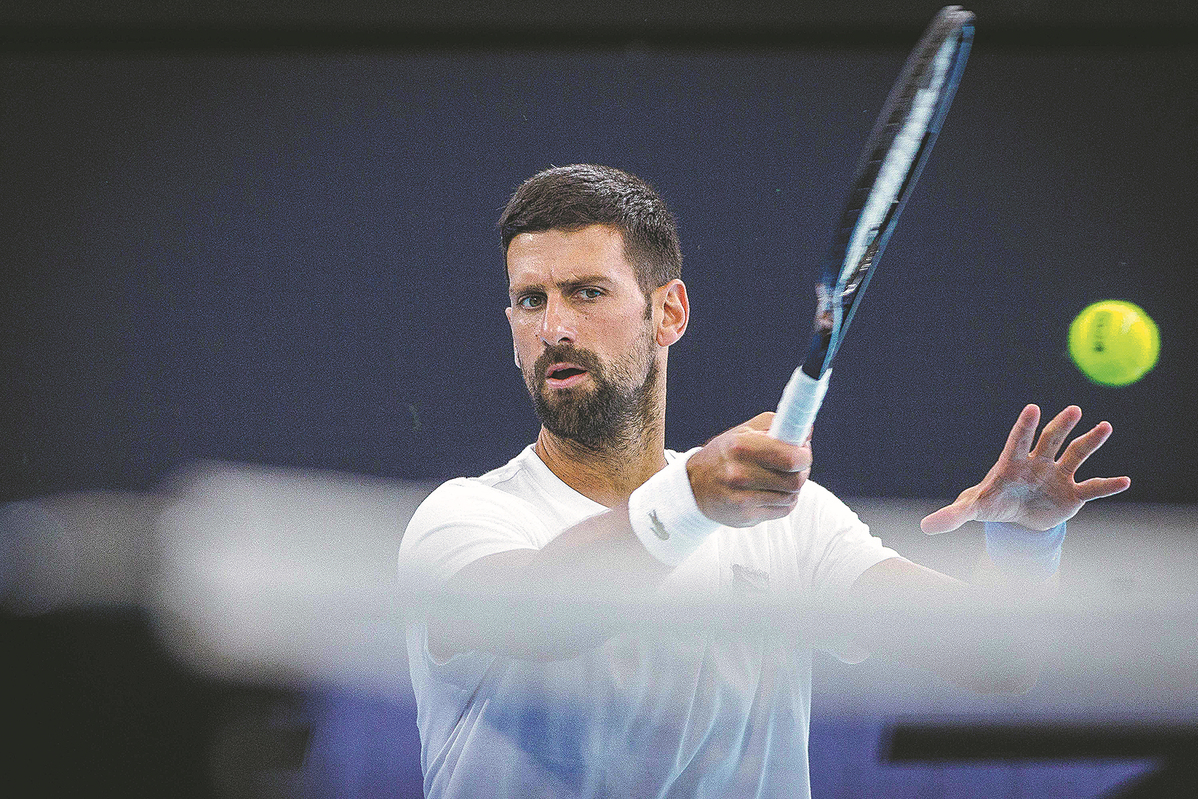

Serbian Novak Djokovic attends training on Saturday ahead of the Brisbane International tennis tournament. AFP
BRISBANE, Australia — Novak Djokovic on Sunday called for more transparency around doping suspensions in tennis, saying high-ranking players appeared to have been treated differently from others.
The 24-time Grand Slam champion agreed with Australian Nick Kyrgios, who said on Saturday that integrity in the sport was ‘terrible’.
They spoke in the wake of doping violations by Italian men’s world number 1 Jannik Sinner and Polish women’s world number 2 Iga Swiatek in 2024.
The 37-year-old Djokovic, who will double with Kyrgios at the Brisbane International this week, said much more transparency is needed from the sport’s governing bodies over doping violations.
And he said it appeared that top players, such as Sinner and Swiatek, were treated differently from those lower down the rankings.
“I think Nick has some good points when it comes to transparency and inconsistency with protocols and case-by-case comparisons,” the Serbian said.
“We have a number of players who have been waiting for more than a year for their cases to be resolved, so the problem is the inconsistency and transparency.”
While Djokovic said he believed Sinner when he said he tested positive for the steroid clostebol due to contamination by his physiotherapist, he claimed the players had been kept “in the dark” throughout the process.
“I am very frustrated, like most other players, that we have been left in the dark for five months,” Djokovic said.
“He (Sinner) received the news (of the positive tests) in April, and the announcement didn’t come until August, just before the US Open.
“The ATP hasn’t really talked in depth about why they hid that matter from the public.
“Then we had (Simona) Halep’s case and Swiatek’s case on the WTA Tour and it doesn’t look good for our sport.”
‘It’s terrible’
Sinner tested positive for clostebol twice in March.
However, the International Tennis Integrity Agency (ITIA) accepted his argument that the steroid entered his system through contamination and decided not to suspend him.
The World Anti-Doping Agency (WADA) subsequently appealed the decision to the Court of Arbitration for Sport, with an award pending.
Swiatek tested positive for the heart drug trimetazidine (TMZ) in an out-of-competition sample in August, when she was ranked No. 1.
As with Sinner, the ITIA accepted that Swiatek’s offense was not intentional, and she was only given a one-month ban.
In contrast, Halep was given a four-year ban by the ITIA in 2022 after testing positive for the anemia drug roxadustat.
She argued that this was the result of a contaminated supplement and successfully appealed to the Court of Arbitration for Sport, which reduced her ban to nine months. She returned to court in March.
“I just question the way the system works,” Djokovic said.
“Why are certain players not treated the same as other players? Perhaps there are ranking reasons behind it, or perhaps others have more financial backing or stronger legal teams.”
Kyrgios is scathing about the ITIA decision involving Sinner.
“The integrity of tennis at the moment – and everyone knows it, but no one wants to talk about it – is terrible,” the Australian said on Saturday, adding that the sport’s image had been tarnished.
“I just think it’s being handled horribly in our sport,” Kyrgios said.
AFP